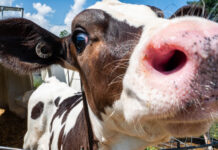U.S. Secretary of Agriculture Sonny Perdue doesn’t need to hit the road this summer to find more than enough messy problems to keep him busy through harvest.
There’s the Chinese trade mess, the NAFTA 2.0 trade mess, the European Union trade mess and the Japanese trade mess.
Also, there’s the mess Mother Nature made of the 2019 planting season and, too, the mess of writing rules for a second multi-billion-dollar “trade” bailout for farmers that he announced in May that the Commodity Credit Corp. (CCC) doesn’t have even half the funding Perdue committed to it.
And then there’s the very messy fight he picked with Congress — the folks who have the final say on every penny of CCC bailout money and every trade treaty — in his bum’s rush to move two U.S. Department of Agriculture (USDA) agencies to the Kansas City area beginning Aug. 1.
Doing so despite every published fact, affected employee and outside analysis declaring the move unwise, unnecessary and harmful both to USDA and American agriculture.
Perdue, however, claims that moving the Economic Research Service (ERS), USDA’s policy analysis shop, and the National Institute of Food and Agriculture (NIFA), its research, extension and education arm, to the heartland will put ERS and NIFA closer to the “customers they serve.”
But Dr. Susan Offutt, ERS administrator from 1997 through 2006, says both agencies’ primary “customers” are policymakers in Congress and other government agencies.
Perdue’s reasoning “sounds good, but it just isn’t how either agency works.”
So why is the secretary fueling this fight when bigger problems — trade, climate change, falling farm income — are more pressing to U.S. farmers and ranchers?
The two short answers are obvious: politics and money.
Perdue recently issued a cost-benefit analysis that he claims shows taxpayers will save $300 million in rent and salaries over the next 15 years through the move.
He also listed an improved “quality of life” as a key benefit.
A review of the secretary’s analysis by a team from the Agricultural and Applied Economics Assoc., AAEA (which included former ERS Administrators Offutt and Kitty Smith), found Perdue’s math way off.
Instead of saving $300 million, the move will cost taxpayers $83 to $182 million more than staying, says AAEA.
Which surprises few in Washington, remarks one Capitol Hill veteran, because “This was always less about money and more about politics.”
Both agencies, in fact, had earned White House ire and were targeted for steep cuts in the Administration’s 2020 budget proposal as Perdue pushed his relocation plan.
Later, when some in Congress moved to block the plan, the secretary cleverly secured $26 million in private, Kansas City-area funds to initiate employee moves, estimated to cost $50,000 per employee, by late July.
The fight, however, has ratcheted up now as Congress and the White House work on a “minibus” funding bill for USDA and the Food and Drug Administration.
Hanging over the already-tense talks, though, is the threat of a presidential veto if Congress includes one word in the bill that keeps Perdue from kicking off the relocation later this summer.
That threat, be it real or bluff, again puts American farmers and ranchers in the middle of another Trump Administration brawl with political opponents.
Worse, since there’s no logical reason to move either NIFA or ERS to Kansas City, the only winner here is bare-knuckled politics — not taxpayers and certainly not farmers and ranchers.
So far, its cost can be measured in employee numbers. Current estimates show ERS staffing down by one-third.
If the move is enforced, that number rises to two-thirds, say USDA staffers.
If accurate, the losses, like today’s endless trade wars, will cost U.S. farmers and ranchers dearly now and in the future, because even though USDA will no longer have enough experts to analyze tax, trade and farm policy changes, America’s corporate and global competitors will.
In fact, most of their new experts will be our old experts.













